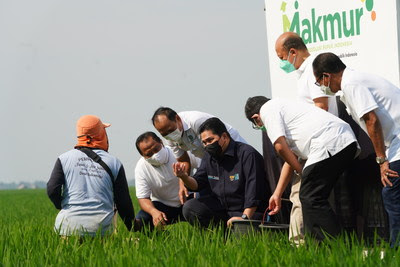Delegates voiced sharp differences today about the work of the Human Rights Council as the General Assembly took up the intergovernmental body’s annual report. While some praised its efforts over the past year to curb human rights violations through the creation of special mechanisms and emergency sessions, other delegates said the Geneva-based intergovernmental body applies double standards that ignore their impact on developing countries.
Presenting the report of the Council’s activities from 1 October 2021 to 7 October 2022, its President, Federico Villegas (Argentina) said that amid an increasingly complex geopolitical context “the Council has continued to come together to address a multitude of recurrent as well as emerging human rights issues and respond to urgent situations, and I must say that I am proud what we have achieved collectively,” he said. Over the course of its three regular sessions, the Council adopted 100 resolutions, President’s statements and decisions and 67 of these were adopted without a vote.
The Council also held three special sessions and two urgent debates to address human rights situations needing urgent attention, he said, including a session in November 2021 on Sudan and another in December 2021 on Ethiopia. In March of this year, following an urgent debate on the human rights situation in Ukraine stemming from the Russian Federation aggression, the Council decided to establish the Independent International Commission of Inquiry on Ukraine. It also appointed a new Special Rapporteur on the situation of human rights in the Russian Federation to monitor information from all relevant stakeholders, including Russian civil society both inside and outside the country. Detailing other action, he said the Council established a group of three human rights experts mandated to conduct thorough, independent investigations into all alleged human rights violations and abuses committed in Nicaragua since April 2018.
General Assembly President Csaba Kőrösi (Hungary) said the world’s contemporary crises make the Council’s work even more urgent to meet the goals of the Universal Declaration of Human Rights. Yet events on the ground have significantly eroded public trust that the body’s actions will lead to better outcomes for the people and the planet. “It is high time for us to change this experience,” he said, prodding it to take swift action to promote the protection of human rights.
Speakers voiced concern about a myriad of human rights situations from the Chinese Government’s campaign against the Uyghurs in Xinjiang and abuses by the military in Myanmar to the war in the Ukraine and Israel’s illegal occupation of Palestinian land. Some called for action to address Islamophobia, with Pakistan’s representative stressing it has been mainstreamed in the political discourse of certain political parties and Governments.
Venezuela’s delegate, speaking on behalf of the Group of Friends in Defence of the Charter of the United Nations, expressed concern about the proliferation of mechanisms and procedures which pretend to make “impartial” assessments of the human rights situations in certain States. Most lack the due consent and participation of the State in question and base their reports on secondary, tertiary and other sources, which are partial or lack credibility, he said.
Echoing that concern, Gerardo Peñalver Portal, Cuba’s Vice Minister for Foreign Affairs, said selectivity, punitive practices and double standards contribute to the manipulation of human rights against the South, which leads to distrust in the Council. The protection of all human rights should be based on universality, objectivity and non-discrimination, he said, stressing that there are human rights violations in developed countries.
On that point, the speaker for the Russian Federation said that under pressure from Western States, the Council adopted a whole host of flagrantly politicized resolutions over the last year including one on the human rights situation in his country. It is increasingly clear that the West wants to transform the Council into a “so-called closed club of supposed real democracies”, who establish rules for the rest of the world, violations of which will be harshly punished.
Countering that view, the United States delegate said such resolutions are intended to protect human rights globally. She said the devastating impact of the Russian Federation’s unjust war against Ukraine led her Government to work with Ukraine and other cross-border groups to set up the Commission on Inquiry on Ukraine.
The speaker for Ukraine, stressing the critical importance of investigating abuses in order to prevent impunity, said the Commission of Inquiry has found reasonable grounds to believe there have been many violations of humanitarian law, including war crimes. Accountability is needed and she called on all partners to bring all perpetrators to justice.
The European Union’s delegate, in its capacity as observer, was among delegates voicing support for the many resolutions that had created various special mechanisms. He said success must be measured not only by ending, but by preventing, human rights violations and holding perpetrators accountable, stressing the need to help the persecuted in Iran and the persecuted Uyghurs and to improve the situation of Afghan women and girls.
While supportive of the Council’s ability to respond swiftly to several emerging human rights challenges, such as in Ukraine and Afghanistan, the representative of Switzerland said he regretted the Council did not hold a debate on the situation in Xinjiang in China, which constitutes crimes against humanity. He endorsed the creation of a new mechanism to address the situation in Yemen.
Speaking on behalf of a Group of States, Yemen’s delegate said ongoing international support for the national mechanism in his country, including through substantive capacity-building and technical assistance, helps the Yemeni people. It ensures human rights monitoring, investigation and accountability. He condemned the Houthi movement’s decision to deny the National Commission of Inquiry formal access to the areas they control.
Also speaking today were representative of Finland (on behalf of the Nordic countries), Maldives, Argentina, Honduras, Qatar, Namibia, Georgia, Liechtenstein, China, Croatia, Kuwait, Portugal, Egypt, Malaysia, Poland, Algeria, Mexico, Myanmar, Afghanistan, Kazakhstan, India, Belarus, Saudi Arabia, Iran, Ethiopia, Syria, Chile, South Africa, Morocco, Democratic People’s Republic of Korea and Romania.
Source: UN General Assembly



